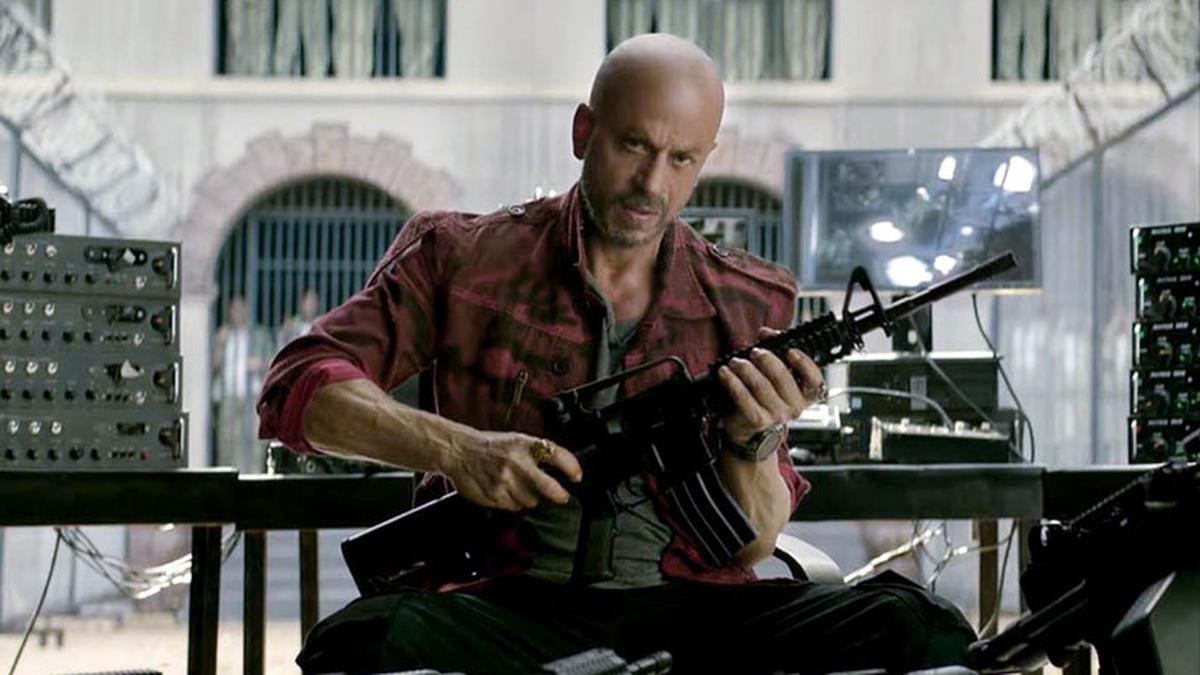
Decoding the political messaging of JawanPremium
The Hindu
Mulk (2018) & Jawan (2019): Two films that stand up for the rights of the oppressed, with Mulk pushing the schemes & ideology of the current dispensation & Jawan delivering a hard-headed message to ask those seeking votes "What will they do for you?". Both films feature strong female characters & a pan-Indian reach, with Shah Rukh Khan's Zinda Banda reminding us he is around. With a focus on discrimination, corruption & more, these films are a reminder of the need to heal broken hearts & ideas.
In 2018, when audience and critics were coming to terms with films pushing the schemes and ideology of the current dispensation, there came Mulk, the tale of a practising Muslim whose family was hounded and declared anti-national by his neighbours because one of his family members was found involved in a terror attack. The film stands up for Murad, the protagonist, and says that the country is as much his as any other Indian’s. At that time, director Anubhav Sinha told this journalist the film was a “propaganda of my version of nationalism.”
Another Lok Sabha election is around the corner and pro and anti-establishment voices are once again reverberating in the air. The latter has been feeble till Shah Rukh Khan’s Jawan hit the screens last week. Beneath the shining coat of swashbuckling action, Jawan is as ordinary as Gadar 2 but riding on the immense following of Shah Rukh and Sunny Deol both manage to effectively package their political messages in a masala roll for an audience hungry for desi mass entertainers after a rash of manufactured realism on OTT platforms.
It is a myth that Shah Rukh Khan in his more than three-decade-long career has stayed away from the socio-political realities of the day and focused only on escapist cinema. Jawan is his most in-your-face attempt but in the past, he has headlined satires such as Oh! Darling Ye Hai India to Phir Bhi Dil Hai Hindustani and gave voice to deep-seated discontent in Swades, My Name Is Khan, Chak De! India and Raees. The last one shows a Muslim bootlegger’s rise in Gujarat where the sale of liquor is prohibited. In his films, the hero’s political stance and anguish against the system come from a deeply personal space. Subversion is not new for Shah Rukh. In the Rahul Dholakia film, young Raees is prescribed spectacles by the doctor but his mother can’t afford them. So, he steals the glasses of Mahatma Gandhi’s statue in the city centre. Raees goes on to become a good man who does bad things. Much like Azaad in Jawan, a policeman who hijacks a train and steals EVMs for the larger good.
Perhaps, because of the limited box office success of Raees and the changed political atmosphere, in the last few years, Shah Rukh’s silence is speaking more than his words on the state of affairs in the country. But this year, the actor has again spoken up through his work and how. In fact, there is a song called Zinda Banda in Jawan to perhaps remind us that he is around.
The tone in Jawan is matter-of-fact, in fact, hard-headed. Azaad, son of a soldier Vikram Rathore, lectures the audience to ask those seeking their votes, “What will they do for you?” Drawing from eminent Urdu poet Waseem Barelvi’s popular couplet, he sings, “Usulon Pe Jahan Aanch Aaye Takrana Zaroori, Banda Zinda Ho to Nazar Aana Zaroori Hai” (When principles are at stake, one must fight. This battle is what keeps you alive).
Keeping it simple, the film bases its argument on discrimination in lending rates to farmers and corporates, farmer suicides, a creaking healthcare system, and corruption in defence deals, issues that are very much relevant but largely missing from the landscape of mainstream news and cinema north of the Vindhyas. The case of Dr. Eerum (Sanya Malhotra) who is falsely implicated in a case of medical negligence reminds us of Dr. Kafeel Khan’s ordeal. More importantly, Rathore and son take on a corporate honcho, the villain of the piece, who is eager to monetise the country’s natural resources because he feels he can circumvent the democratic process. It rings a bell!
It is not just the cast. The span of the narrative is spread across the country, an exercise in national integration. Rathore is saved by a tribe from the North East and when he repays in kind, a child of the tribe promises to trace his backstory and eventually becomes the connecting link between Rathore and his son who is born in jail much like the mythical Krishna, and is brought up by the female inmates. When he breaks into Ramaiya Vastvaiyya, the hook phrase in Telugu is not just a tribute to the socialist idiom of lyricist Shailendra in Shree 420 but also a call to make haste to usher in change.

 Run 3 Space | Play Space Running Game
Run 3 Space | Play Space Running Game Traffic Jam 3D | Online Racing Game
Traffic Jam 3D | Online Racing Game Duck Hunt | Play Old Classic Game
Duck Hunt | Play Old Classic Game











